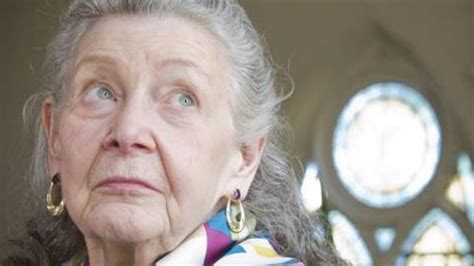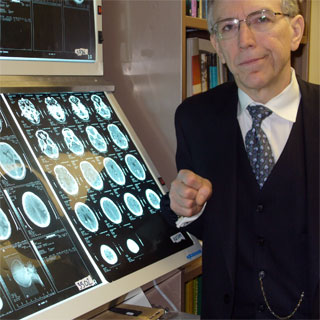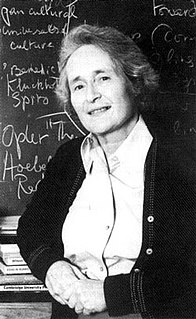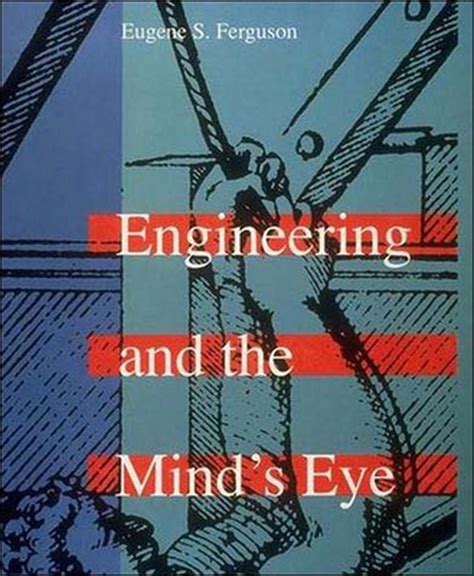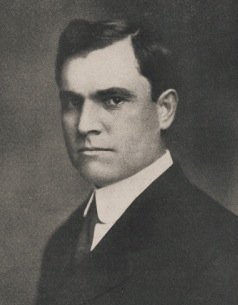Top 110 Cathedrals Quotes & Sayings - Page 2
Explore popular Cathedrals quotes.
Last updated on April 20, 2025.
The image of how power shows itself to the public is important... CNN was an inspiration to do the project in color because power confirms itself through television... I thought it would be interesting to copy the same language. large color pictures are framed in heavy wooden frames with golden plates and hung slightly higher than normal. So viewers get a sore neck watching these events, this is also the case when looking at paintings of saints in cathedrals.
You sharpen the human appetite to the point where it can split atoms with its desire; you build egos the size of cathedrals; fiber-optically connect the world to every eager impulse; grease even the dullest dreams with these dollar-green, gold-plated fantasies, until every human becomes an aspiring emperor, becomes his own God... and where can you go from there?
In northern architecture - the cathedrals of Europe and all the little churches - the details, the carving of stone, become necessary because the light is not there to help you very much. You have to enrich surfaces. The desert reduces form to its simplest nature. There is no need for gargoyles or flying buttresses in the desert.
There is a great deal more correctness of thought respecting manhood in bodily things than in moral things. For men's ideas of manhood shape themselves as the tower and spire of cathedrals do, that stand broad at the bottom, but grow tapering as they rise, and end, far up, in the finest lines, and in an evanishing point. Where they touch the ground they are most, and where they reach to the heaven they are least.
Behaviorism proposes to study human behavior according to the methods developed by animal and infant psychology. It seeks to investigate reflexes and instincts, automatisms and unconscious reactions. But it has told us nothing about the reflexes that have built cathedrals, railroads, and fortresses, the instincts that have produced philosophies, poems, and legal systems, the automatisms that have resulted in the growth and decline of empires, the unconscious reactions that are splitting atoms.
Nothing is more urgent than a serious, dare I say compassionate, debate as to where we are going at home and abroad. Technicians cannot master revolutions; every great achievement was an idea before it became a reality. Cathedrals cannot be built by those who are paralyzed by doubt or consumed by cynicism. If a society loses the capacity for great conception, it can be administered but not governed.
Norwich is a fine city. None finer. If there is another city in the United Kingdom with a school of painters named after it, a matchless modern art gallery, a university with a reputation for literary excellence which can boast Booker Prize-winning alumni, one of the grandest Romanesque cathedrals in the world, and an extraordinary new state-of-the-art library then I have yet to hear of it.
The confusion of spirit and body is quite understandable in a culture where spirit is concretized in magnificent skyscrapers, where cathedrals have become museums for tourists, where woman-flesh-devil are associated, and nature is raped for any deplorable excuse. Dieting with fierce will-power is the masculine route; dieting with love of her own nature is the feminine. Her only real hope is to care for her own body and experience it as the vessel through which her Self may be born.
Are you looking for me? I am in the next seat. My shoulder is against yours. you will not find me in the stupas, not in Indian shrine rooms, nor in synagogues, nor in cathedrals: not in masses, nor kirtans, not in legs winding around your own neck, nor in eating nothing but vegetables. When you really look for me, you will see me instantly - you will find me in the tiniest house of time. Kabir says: Student, tell me, what is God? He is the breath inside the breath.
They say that these are not the best of times, but they're the only times I've ever known. And I believe there is a time for meditation in cathedrals of our own. Now I have seen that sad surrender in my lovers eyes...and I can only stand apart and sympathize...for we are only what our situations hand us...it's either sadness or euphoria.
I believe that the tragedy [like terror attack] that's caused so much grief and suffering to so many thousands and thousands of people has also served as a call to action, because many people now are re-examining their own value systems, and the churches, temples, mosques and cathedrals are packed to overflowing for the first time in years.
A few minutes ago every tree was excited, bowing to the roaring storm, waving, swirling, tossing their branches in glorious enthusiasm like worship. But though to the outer ear these trees are now silent, their songs never cease. Every hidden cell is throbbing with music and life, every fiber thrilling like harp strings, while incense is ever flowing from the balsam bells and leaves. No wonder the hills and groves were God's first temples, and the more they are cut down and hewn into cathedrals and churches, the farther off and dimmer seems the Lord himself.
Mountains are cathedrals: grand and pure, the houses of my religion. I go to them as humans go to worship...From their lofty summits, I view my past, dream of the future, and with unusual acuity I am allowed to experience the present moment. My strength renewed, my vision cleared, in the mountains I celebrate creation. On each journey I am reborn.
At the time Gothic cathedrals were designed, most people lived in dark huts, so just walking into a space vastly larger than what they were habituated to, lit by stained glass windows, was literally awe-inspiring. Today, we're not as impressed by big buildings, so we have to go to very large mountains to experience that 'diminutive effect.'
It seems that, after nineteen centuries of extraordinary glorification, the small Host for which so many cathedrals have sprung up, the small Host that has rested in millions of breasts and that has found a tabernacle and worshippers even in the desert - it seems that the triumphant Host of Lourdes and the Eucharistic Congresses of Chicago and Carthage remains as unknown, as secret as when it appeared for the first time in a room in Jerusalem. Light is in the world as in the days of St. John the Baptist, and the world does not know it
The creativity and pathology of the human mind are, after all, two sides of the same medal coined in the evolutionary mint. The first is responsible for the splendour of our cathedrals, the second for the gargoyles that decorate them to remind us that the world is full of monsters, devils, and succubi.
Architecture traditionally has been the slowest of art forms. It was not unusual for great cathedrals to take centuries to complete, with stylistic changes from Romanesque to Gothic or Renaissance to Baroque as common as the addition of chapels or spires. But because the function remained the same, the form could be flexible and its growth organic.
Religious liberty in a nation is as real as the liberty of its least popular religious minority. Look not to the size of cathedrals or even to the words on the statute books for proof of the reality of religious freedom. Ask what is the fate of the Protestant in Spain, the Jew in Saudi Arabia, the Arab in Israel, the Catholic in Poland or the atheist in the United States.
Every generation has its war. I have just been reminded of mine. It ended in 1989, 43 years after it began, the longest war Britain fought and certainly the most expensive. Its climax was total victory. Yet there was no parade, no medals, no colours hung in cathedrals. The Cold War saw no battles and cost almost no blood. Where there is no blood there is no glory and hence no history. Asked What did you do in the war, Daddy?, I could say only that I paid my taxes and left it at that.
If cathedrals had been universities If dungeons of the Inquisition had been laboratories If Christians had believed in character instead of creed If they had taken from the bible only that which is GOOD and thrown away the wicked and absurd If temple domes had been observatories If priests had been philosophers If missionaries had taught useful arts instead of bible lore If astrology had been astronomy If the black arts had been chemistry If superstition had been science If religion had been humanity The world then would be a heaven filled with love, and liberty and joy
Everything in New Orleans is a good idea. Bijou temple-type cottages and lyric cathedrals side by side. Houses and mansions, structures of wild grace. Italianate, Gothic, Romanesque, Greek Revival standing in a long line in the rain. Roman Catholic art. Sweeping front porches, turrets, cast-iron balconies, colonnades- 30-foot columns, gloriously beautiful- double pitched roofs, all the architecture of the whole wide world and it doesn't move.
All over France, in every city there stand cathedrals like this one, triumphant monuments of the past. They tower over the homes of our people like mighty guardians, keeping alive the invincible faith of the Christian. Every arch, every column, every statue is a carved leaf out of our history, a book in stone, glorifying the spirit of France.
Let the people walk. Or ride horses, bicycles, mules, wild pigs-anything-but keep the automobiles and the motorcycles and all their motorized relatives out. We have agreed not to drive our automobiles into cathedrals, concert halls, art museums, legislative assemblies, private bedrooms and other sanctums of our culture; we should treat our national parks with the same deference, for they, too, are holy places.
What profusion is there in His work! When trees blossom there is not a single breastpin, but a whole bosom full of gems; and of leaves they have so many suits that they can throw them away to the winds all summer long. What unnumbered cathedrals has He reared in the forest shades, vast and grand, full of curious carvings, and haunted evermore by tremulous music; and in the heavens above, how do stars seem to have flown out of His hand faster than sparks out of a mighty forge!
There was no manifestation of contemporary culture that did not indicate to my grandmother how steadfast was the nation's decline, how merciless our mental and moral deterioration, how swiftly all-embracing our final decadence. I never saw her read a book again; but she referred to books often - as if they were shrines and cathedrals of learning that television had plundered and then abandoned.
I would not like to live in a world without cathedrals. I need their beauty and grandeur. I need their imperious silence. I need it against the witless bellowing of the barracks yard and the witty chatter of the yes-men. I want to hear the rustling of the organ, this deluge of ethereal notes. I need it against the shrill farce of marches.
If all those magnificent cathedrals with their valuable lands in Boston, Philadelphia and New York were taxed as they should be, the taxes of women who hold property would be proportionately lightened....I cannot see any good reason why wealthy churches and a certain amount of property of the clergy should be exempt from taxation, while every poor widow in the land, struggling to feed, clothe, and educate a family of children, must be taxed on the narrow lot and humble home.
If you want to humble an empire it makes sense to maim its cathedrals. They are symbols of its faith, and when they crumple and burn, it tells us we are not so powerful and we can't be safe. The Twin Towers of the World Trade Center, planted at the base of Manhattan island with the Statue of Liberty as their sentry, and the Pentagon, a squat, concrete fort on the banks of the Potomac, are the sanctuaries of money and power that our enemies may imagine define us. But that assumes our faith rests on what we can buy and build, and that has never been America's true God.
This London City, with all of its houses, palaces, steam-engines, cathedrals, and huge immeasurable traffic an tumult, what is it but a Thought, but millions of Thoughts made into One-a huge immeasurable Spirit of a Thought, embodied in brick, in iron, smoke, dust, Palaces, Parliaments, Hackney Coaches, Katherine Docks, and the rest of it! Not a brick was made but some man had to think of the making of that brick.
Indeed Christianity passes. Passes - it has gone! It has littered the beaches of life with churches, cathedrals, shrines and crucifixes, prejudices and intolerances, like the sea urchin and starfish and empty shells and lumps of stinging jelly upon the sands here after a tide. A tidal wave out of Egypt. And it has left a multitude of little wriggling theologians and confessors and apologists hopping and burrowing in the warm nutritious sand. But in the hearts of living men, what remains of it now? Doubtful scraps of Arianism. Phrases. Sentiments. Habits.
Pyramids, cathedrals, and rockets exist not because of geometry, theories of structures, or thermodynamics, but because they were first a picture- literally a vision-in the minds of those who built them. Society is where it is today because people had the perception; the images and the imagination; the creativity that the Arts provide, to make the world the place we live in today.
No sovereign, no court, no personal loyalty, no aristocracy, no church, no clergy, no army, no diplomatic service, no country gentlemen, no palaces, no castles, nor manors, nor old country-houses, nor parsonages, nor thatched cottages nor ivied ruins no cathedrals, nor abbeys, nor little Norman churches no great Universities nor public schools -- no Oxford, nor Eton, nor Harrow no literature, no novels, no museums, no pictures, no political society, no sporting class -- no Epsom nor Ascot Some such list as that might be drawn up of the absent things in American life.
Our respect for the dead, when they are just dead, is something wonderful, and the way we show it more wonderful still. We show it with black feathers and black horses; we show it with black dresses and black heraldries; we show it with costly obelisks and sculptures of sorrow, which spoil half of our beautiful cathedrals. We show it with frightful gratings and vaults, and lids of dismal stone, in the midst of the quiet grass; and last, and not least, we show it by permitting ourselves to tell any number of falsehoods we think amiable or credible in the epitaph.
Masonry is too great an institution to have been made in a day, much less by a few men, but was a slow evolution through long time, unfolding its beauty as it grew. Indeed, it was like one of its own cathedrals which one generation of builders wrought and vanished, and another followed, until, amidst vicissitudes of time and change, of decline and revival, the order itself became a temple of Freedom and Fraternity.
Back in the 1500s, the culture that we had built in the West embraced multigenerational projects quite easily. Notre Dame. Massive cathedrals were not built over the course of a few years, they were built over a few generations. People who started building them knew they wouldn't be finished until their grandson was born.
A library in the middle of a community is a cross between an emergency exit, a life raft and a festival. They are cathedrals of the mind; hospitals of the soul; theme parks of the imagination. On a cold, rainy island, they are the only sheltered public spaces where you are not a consumer, but a citizen, instead.
I was in the show for 21 days once-the 21 greatest days of my life. You know, you never handle your luggage in the show, somebody else carries your bags. It was great. You hit white balls for batting practice, the ballparks are like cathedrals, the hotels all have room service, and the women all have long legs and brains.
If you have a faith, it is statistically overwhelmingly likely that it is the same faith as your parents and grandparents had. No doubt soaring cathedrals, stirring music, moving stories and parables, help a bit. But by far the most important variable determining your religion is the accident of birth. The convictions that you so passionately believe would have been a completely different, and largely contradictory, set of convictions, if only you had happened to be born in a different place.








